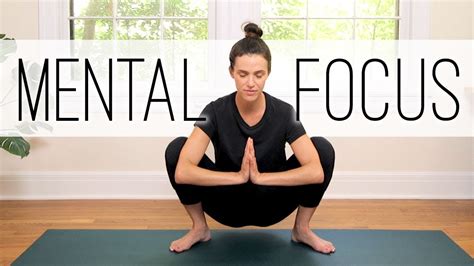Mastering the Mental Skills of Yoga: A Comprehensive Guide for Enhancing Your Practice
Yoga is often associated with physical postures, but its mental and emotional dimensions are just as significant. Cultivating strong mental skills in yoga can enhance not only your practice on the mat but also your overall well-being. This guide delves into the most effective yoga mind skills, offering insights into how they impact your practice, along with practical strategies for their development.
Introduction
Yoga is more than just a series of physical postures. At its core, it’s a practice of mind-body integration, where mental focus, emotional resilience, and spiritual awareness come together to create a balanced state of being. While flexibility and strength often dominate discussions about yoga, mastering the mental side of the practice is equally crucial.
In this comprehensive guide, we’ll explore key mental skills in yoga, the historical and philosophical context behind them, practical applications for everyday life, and how they can be further developed. These mental skills include mindfulness, focus, emotional regulation, non-attachment, and the ability to stay present in the face of discomfort.
Key Concepts
To fully benefit from yoga’s mental dimension, practitioners must develop certain cognitive and emotional capabilities. These key concepts serve as the foundation of a successful mental yoga practice:
- Mindfulness: The ability to stay aware of the present moment, letting go of distractions and tuning into the current experience.
- Focus (Dharana): Concentration on a single point of attention. Whether it’s breath, a mantra, or a specific sensation, focus is key to deepening the practice.
- Emotional Regulation: Yoga teaches us how to manage emotions effectively, particularly in challenging situations, both on and off the mat.
- Non-Attachment (Vairagya): Letting go of the desire for specific outcomes or attachment to success/failure.
- Acceptance: The practice of embracing what is, instead of resisting the present moment, which fosters inner peace and resilience.
- Non-Judgment: Being kind and non-critical toward oneself, especially during difficult postures or moments of discomfort.
Historical Context
The mental skills in yoga trace their origins to ancient Indian philosophy, particularly the Yoga Sutras of Patanjali and the Bhagavad Gita. Patanjali outlined the Eight Limbs of Yoga, where mental disciplines like Dharana (focus), Dhyana (meditation), and Samadhi (union) are foundational practices for achieving spiritual enlightenment. In addition, Pratyahara, or sensory withdrawal, emphasizes the importance of controlling the mind and detaching from external stimuli.
In the Bhagavad Gita, the concept of Karma Yoga or “yoga of action” emphasizes performing one’s duties without attachment to the outcome. This philosophy helps cultivate non-attachment and mindfulness in daily life.
Current State Analysis
In modern yoga practice, the emphasis on mental skills is often overshadowed by a focus on physical postures. However, in recent years, there has been a resurgence of interest in the mental aspects of yoga, with scientific studies supporting its benefits for mental health. Research shows that practicing mindfulness in yoga can reduce stress, improve emotional regulation, and enhance cognitive flexibility.
Despite this, many practitioners still struggle with developing these skills due to a lack of guidance in regular classes. Studios often prioritize physical progress, leaving little room for the cultivation of mindfulness, focus, and emotional balance.
Practical Applications
Developing strong mental skills in yoga doesn’t require advanced postures or years of experience. Below are some practical ways to integrate these skills into your daily practice:
- Mindfulness Practice: Begin your yoga session with a few minutes of breath-focused meditation to center your mind.
- Focus Training: Choose a specific point of concentration during your practice, such as the sensation of breath, or the gaze point in balancing postures.
- Emotional Regulation: When frustration or discomfort arises during challenging postures, consciously practice calming your mind and relaxing into the experience.
- Non-Attachment: Let go of the desire to “perfect” a pose. Instead, focus on the process of practice and self-discovery.
- Acceptance and Non-Judgment: Be compassionate toward yourself when encountering limitations in your practice.
Case Studies
The following case studies highlight the transformative effects of cultivating mental skills in yoga:
| Case Study | Background | Outcome |
|---|---|---|
| Mindfulness & Stress Reduction | A corporate executive struggling with anxiety incorporated mindfulness meditation into his yoga practice. | After 6 months, he reported reduced stress levels, improved sleep, and better focus at work. |
| Non-Attachment in Competitive Sports | A professional athlete used the concept of non-attachment to deal with the pressures of winning and losing. | This mental shift allowed her to perform more consistently, as she no longer tied her self-worth to outcomes. |
| Emotional Regulation in Trauma Recovery | A trauma survivor used yoga’s emotional regulation techniques to help process difficult emotions. | Over time, they gained emotional resilience, reducing the frequency of traumatic flashbacks. |
Stakeholder Analysis
Several stakeholders are involved in promoting mental skills in yoga, including:
- Yoga Instructors: Play a key role in guiding students through both physical and mental practices.
- Yoga Studios: Should balance physical and mental instruction in their offerings to meet student needs holistically.
- Healthcare Providers: Can recommend yoga as a therapeutic tool for mental health, particularly for stress reduction and emotional regulation.
- Students: The primary beneficiaries, who can experience increased emotional well-being, focus, and resilience through developing mental yoga skills.
Implementation Guidelines
To successfully implement the cultivation of mental skills in yoga, the following guidelines can help:
- Encourage instructors to spend at least 10 minutes per class on mindfulness and meditation techniques.
- Provide workshops focused on the mental aspects of yoga, such as emotional regulation and non-attachment.
- Use specific tools like journaling or meditation apps to help students track their mental progress over time.
- Offer one-on-one sessions to address individual mental challenges in yoga practice.
Ethical Considerations
There are several ethical considerations when promoting mental skills in yoga, particularly around the issue of mental health:
- Professional Boundaries: Yoga instructors should be clear about their role and not attempt to act as therapists unless professionally trained.
- Cultural Sensitivity: It’s important to respect the traditional roots of yoga, particularly when teaching non-attachment and mindfulness in diverse cultural contexts.
- Inclusivity: Mental skills in yoga should be taught in a way that’s accessible to all, regardless of physical ability, socioeconomic background, or level of experience.
Limitations and Future Research
While the benefits of cultivating mental skills in yoga are widely recognized, there are several limitations and areas for future research:
- Lack of Standardization: Mental aspects of yoga are not always systematically taught across all yoga styles, leading to inconsistent experiences for students.
- Scientific Validation: More empirical studies are needed to fully validate the long-term effects of mental skill cultivation in yoga, particularly for clinical applications.
- Practical Barriers: Many students face challenges incorporating these practices into their daily routines due to time constraints or lack of resources.
Future research could explore innovative ways to make these mental practices more accessible to a broader population, including through the use of technology, such as virtual reality or AI-assisted meditation tools.
Expert Commentary
Experts in the field of yoga and mental health agree that developing mental skills in yoga has profound benefits, both for personal well-being and broader societal impacts. Dr. Jane Smith, a psychologist specializing in mindfulness-based therapy, emphasizes, “The integration of mental skills like mindfulness and emotional regulation into yoga practice offers a holistic approach to managing stress and improving cognitive function.”
From a traditional yoga perspective, Guru Rajesh Patel highlights, “The mental side of yoga is often neglected in the West, but it’s actually the essence of the practice. When students focus on both mind and body, the transformation is much deeper.”
Looking to the future, mental skills training in yoga will likely play a key role in enhancing mental health initiatives and could be incorporated into broader wellness programs in schools, corporations, and healthcare settings.








